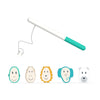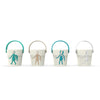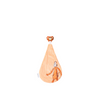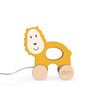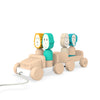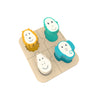All About Tantrums: What to do and what not to do.
Ah, tantrums… It’s very humbling to have a child. All of those smug judgements you made about other people’s children having tantrums. Your child would never be like that, of course. And then all of a sudden, you’re the one getting the sideways glances as you realise it wasn’t as simple as you thought.
It’s not just a case of parenting skills. I’m almost certain that no parent will escape having to deal with the odd tantrum. In fact, tantrums occur in the same way in children all over the world.
Why do toddlers have tantrums?
When a child has limited verbal skills and is still learning about the world around them, frustration or confusion can often spill over into anger and upset. It can be something just as simple as being hungry, tired or uncomfortable. Not being able to get what they want, like the attention of their parent or a toy.
There’s a power struggle between the toddler and their environment once they realise they can change it with their actions. They’re discovering what they can manipulate and control themselves to get the desired outcome and what they can’t. At the same time as wanting independence, they’re also still dependent on you. When they discover what they want can’t be achieved in the way they want, or if they can’t express themselves - this can lead to tantrums.
Common reasons for a toddler tantrum
In the most part, toddlers seem to have tantrums for four main reasons.
- They want your attention
- They want something and are being thwarted or denied in some way
- They don’t want to do something and are protesting
- They’re just tired, hungry or uncomfortable
Tantrums are thrown for different reasons. The reason why your toddler is having a tantrum should determine how you handle it.

Tactics to diffuse tantrums when they happen
Fortunately, there are some strategies you can use to try to calm your toddler or decrease the frequency of their tantrums.
- Ignoring your toddler in the first two instances is a good tactic. It’s likely to show them they can’t get your attention, or whatever else they want by throwing an enormous tantrum. This will encourage their growing out of tantrums. Toddlers learn fast and will soon find a better way to try and get what they want.
- In the third instance, your toddler is throwing a tantrum because they don’t want to do something that you want them to do. Like, go to bed. They want to be able to do what they want. In this case, stay calm but firm. Give them the option to do something without your help if they’re able, but otherwise, supervise or assist until a particular action is complete.
- If your toddler is just tired, hungry or uncomfortable, soothing them until you can fix these things may go some way to alleviating the worst of the tantrum.
- Try to stay calm. It can be really hard not to lose your one cool if your toddler is screaming. Although it’s often frustrating, upsetting and embarrassing - sometimes making you feel like you want to have your own tantrum! By staying calm (or at least pretending to) you can stop the situation escalating even more.
Ideas to avoid tantrums happening
- Identify the triggers of a tantrum. If you know you’re approaching a situation that often causes upset - like shopping - going after your child has had a nap and a snack may help avoid tears.
- Hunger, tiredness and overstimulation can often spill over into tantrum territory. Try and tune into your child's rhythms to predict how they’re feeling.
- If you see your child struggling with emotion, talk to them and help them verbalise. For example “Did you throw your toy because it’s broken? What else could you have done?”
Remember, despite all the advice you read - things never seem to happen by the book. Everything sounds easier until you have to deal with it yourself, right? Have you discovered any tactics that work for you and your toddler? We’d love to know! Tell us about it on Instagram or Twitter @matchstick_monkey













